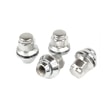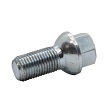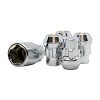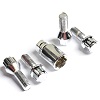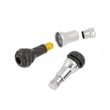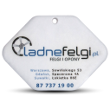Which rims should you choose for winter? Aluminum or steel? Smaller or larger?
Properly selected winter rims are key to comfortable and safe winter driving. Each option—whether aluminum or steel, large or small—has its advantages and disadvantages. In this article, we'll explore which rims to choose for winter, ensuring they last for many seasons and provide maximum safety on slippery roads.
Aluminum or steel rims for winter - advantages and disadvantages
When we want to invest in winter rims, we usually wonder whether steel or aluminum models are a better choice.
Steel rims:
- Advantages: They are durable, resistant to mechanical damage, and less expensive to purchase. Their design makes them ideal for harsh winter conditions, such as deep snow or salt-covered sidewalks.
- Cons: They weigh more than aluminum rims, which can impact fuel economy and ride comfort. They're also prone to corrosion, especially when regularly exposed to road salt.
Aluminum rims:
- Advantages: Aluminum rims are lighter, which translates into better vehicle performance and lower fuel consumption. They are aesthetically better than steel rims and offer a wider selection of designs and colors.
- Cons: They are more susceptible to damage, especially from curb impacts. They can also be more expensive to purchase and require regular maintenance to avoid corrosion.
What size rims should I choose for the winter season - large or smaller?
When choosing the rim size we are interested in, we should pay attention not only to aesthetics, but above all to functionality and driving safety.
- Smaller rims: These are more practical for winter use. Thicker tires designed for smaller rims provide better traction on snow and ice. They are also less susceptible to damage from potholes and rocks.
- Larger rims: They can improve the car's appearance, but they are less practical in winter. Thinner tires may have poorer traction in snow, and the rims themselves are more susceptible to damage.

Comparison of the cost and durability of winter rims
When choosing the right winter rims, it's important to consider both the purchase price and the durability of the product. Here's a comparison of the two most popular types of rims: steel and aluminum:
- Starting price:
- Steel rims: Usually cheaper to purchase than aluminum rims.
- Aluminum rims: Usually more expensive , but can offer aesthetic and technical benefits.
- Durability:
- Steel rims: Resistant to mechanical damage , which can extend their lifespan. However, steel rims can be susceptible to corrosion in wet and salty winter conditions.
- Aluminum rims: More susceptible to mechanical damage , but resistant to chemical corrosion and road salt.
- Long-term benefits:
- Steel rims: Less risk of damage , which can translate into lower service costs in the long run.
- Aluminum rims: Their lightweight nature can improve fuel economy. They are also easier to install and remove, which can reduce maintenance costs.
In summary, both steel and aluminum rims have their strengths and weaknesses. If you're still considering which rims to choose for winter, the choice between them should be based on your individual needs and budget.
Summary - how to choose the right rims for winter?
If you're wondering which rims to choose for winter, remember that it's not easy, especially for someone doing it for the first time. Some people prioritize aesthetics, while others prioritize functionality and durability. Regardless of which aspect is most important to you, it's important to understand your needs and be aware of the differences between the options available on the market.
Affordable and durable , steel rims are often recommended for drivers who value sturdiness and durability in harsh winter conditions . Their resistance to damage makes them an ideal choice for those who frequently drive on unpaved roads or routes with many potholes and bumps. Aluminum rims, on the other hand, are an excellent choice for those who value aesthetics and want their car to stand out on the road . However, choosing them requires regular maintenance to prevent corrosion and other damage.
It's worth noting that rim size is also important. Smaller rims with thicker tires can offer better traction in snow, while larger rims can improve the car's appearance but may not be as practical in harsh winter conditions. It's also worth considering the costs associated with purchasing and maintaining rims. While steel rims may be cheaper to buy, they may require more frequent replacement compared to more expensive but more durable aluminum rims .
Ultimately, the key is understanding your needs and budget. It's also worth consulting with experts or service technicians and reading more about when to replace your rims to make the best choice for you and your car. Remember, safety should always come first, so choose rims that will keep you confident and comfortable throughout the winter season.
In summary, choosing the right winter rims is an important decision that impacts both the comfort and safety of winter driving. When choosing between steel and aluminum rims, it's worth considering aspects such as price, durability, and long-term benefits. Furthermore, the right rim size can significantly impact a vehicle's performance on slippery surfaces, so it's worth making this choice consciously.



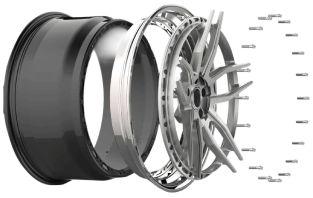
 Modern design
Modern design Perfect fit
Perfect fit High durability
High durability Free shipping within 24 hours
Free shipping within 24 hours
 Individual project
Individual project Dedicated caregiver
Dedicated caregiver
